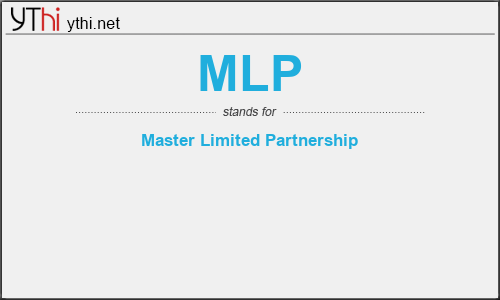What does MLP mean? What is the full form of MLP?
The Full Form of MLP is Master Limited Partnership.
Master limited partnerships (MLPs) are a business venture that exists in the form of a publicly traded limited partnership. They combine the tax benefits of a private partnership—profits are taxed only when investors receive distributions—with the liquidity of a publicly-traded company (PTP).
A master limited partnership trades on national exchanges. MLPs are situated to take advantage of cash flow, as they are required to distribute all available cash to investors. They can also help reduce the cost of capital in capital-intensive businesses, such as the energy sector.
The first MLP was organized in 1981. However, by 1987, Congress effectively limited the use of them to the real estate and natural resources sectors. These limitations were put into place out of a concern over too much lost corporate tax revenue since MLPs do not pay federal income taxes.
The MLP is a unique hybrid legal structure that combines elements of a partnership with elements of a corporation. First of all, it is considered the aggregate of its partners rather than a separate legal entity—as is the case with a corporation. Second, it technically has no employees. The general partners are responsible for providing all necessary operational services. General partners usually hold a 2% stake in the venture and have the option to increase their ownership.
Like a partnership, an MLP issues units instead of shares. However, these units are often traded on national stock exchanges. The availability of exchanges offers significant liquidity that traditional partnerships do not offer. Because these publicly traded units are not stock shares, those who invest in MLPs are commonly referred to as unitholders, rather than shareholders. Those who buy into an MLP are also called limited partners. These unitholders are allocated a share of the MLP’s income, deductions, losses, and credits.
MLPs have two classes of partners:
- Limited partners are investors who purchase shares in the MLP and provide the capital for the entity’s operations. They receive periodic distributions from the MLP, typically every quarter. Limited partners are also known as silent partners.
- General partners are the owners who are responsible for managing the day-to-day operations of the MLP. They receive compensation based on the partnership’s business performance.
MLP
means
Master Limited Partnership![]()
Translate Master Limited Partnership to other language.


Leave a Reply
You must be logged in to post a comment.